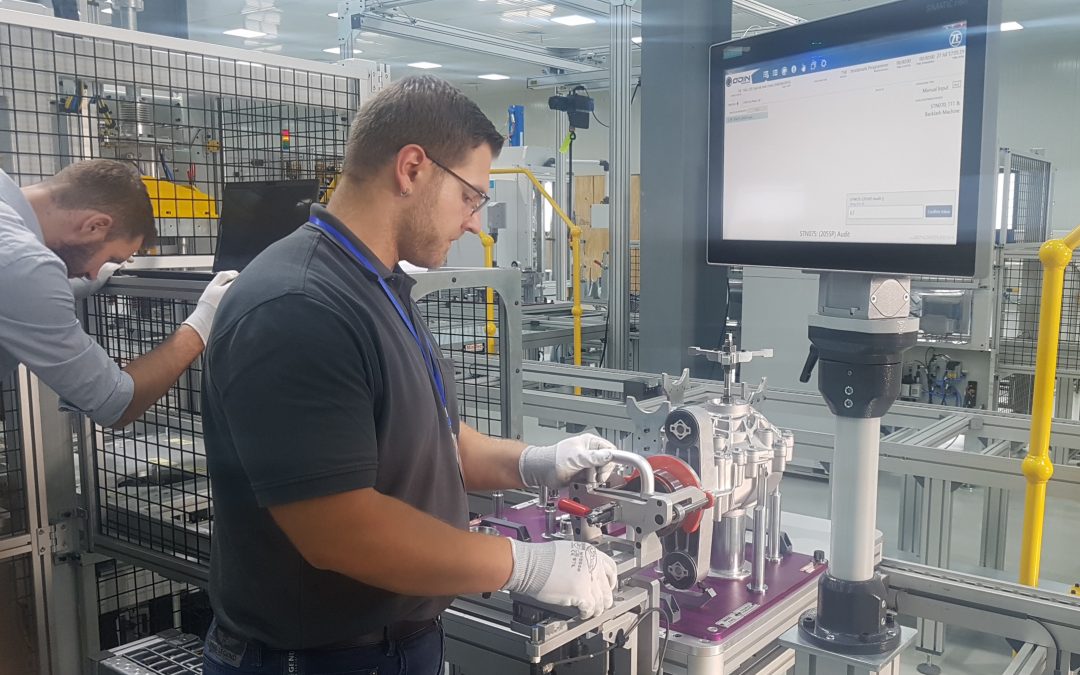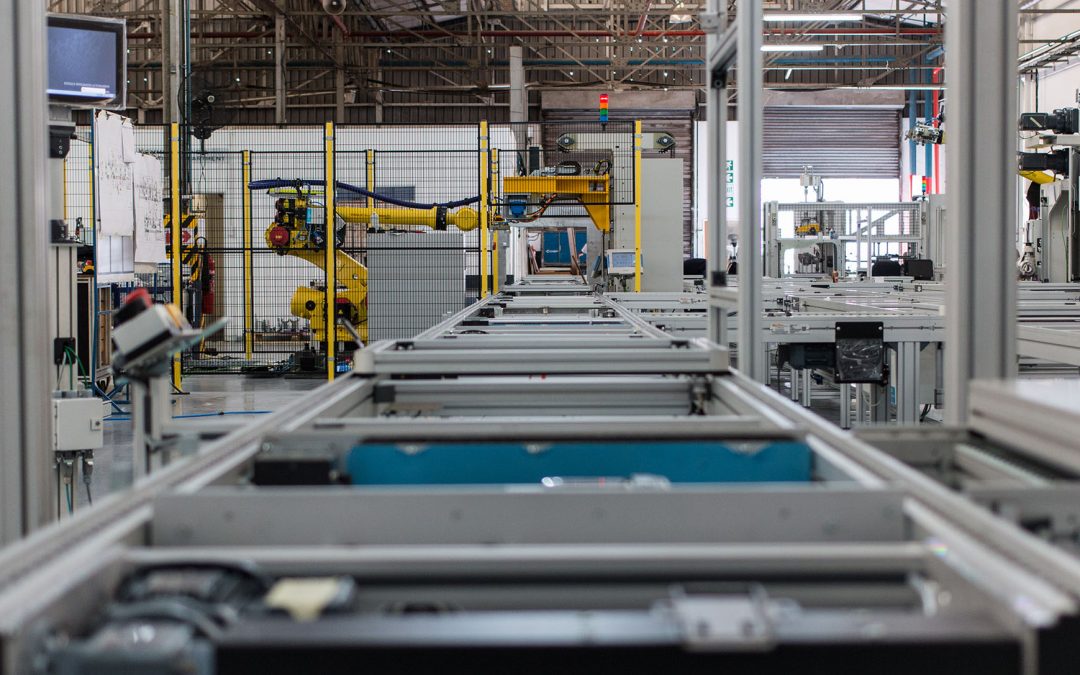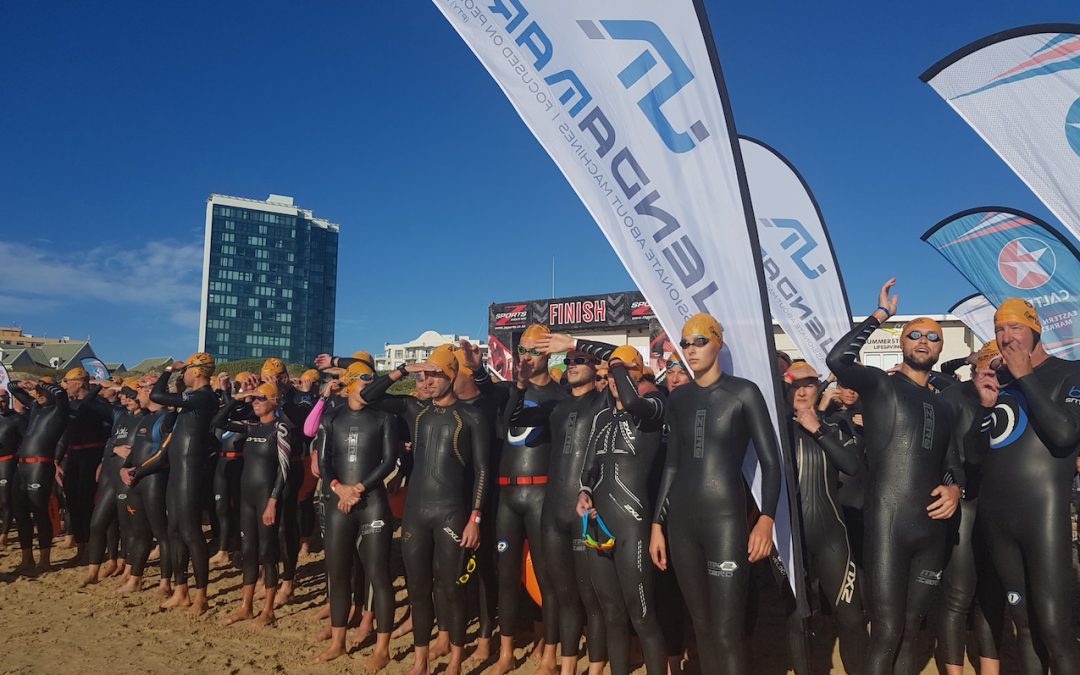
by Good News Lab | Nov 7, 2018 | Industry 4.0, Jendamark Junction
The success of any Industry 4.0 initiative lies in the ability to capture and analyse big data as part of the human or machine decision-making process. For this to happen, systems must be integrated to enable them to “talk” to each other.
To this end, Jendamark has developed its own standardised software platform called Odin (after the Norse god of wisdom).
“A big part of Industry 4.0 is software,” says Yanesh Naidoo. “We wanted to establish a standardised platform on which all of our software could work. We currently have three modules running on Odin and the number will continue to grow.”
ODIN WORKSTATION
The first module, called WorkStation, is an application that runs on the shop floor. The easy-to-use visual interface guides operators through the component assembly process.
“This is especially useful where different types of engines are built on the same line. The operator doesn’t have to remember each process and becomes more efficient,” says Naidoo.
The application tracks process data, runs diagnostics and includes a traceability interface as part of the quality review process.
“The maintenance interface allows the operator to call the maintenance team from the screen, thereby getting assistance faster and reducing downtime.”
He says the addition of augmented reality “smart glasses” takes this a step further, allowing remote maintenance support “through your eyes”, which Jendamark first used on a recent Audi project in India.
ODIN LINEWATCH
The second module, LineWatch, can be viewed on a screen above the production line or as a computer app.
As a visual snapshot of the entire production process, which interfaces with SAP, it allows managers to keep an eye on all aspects, such as the number of parts produced per shift, those queued, in progress, finished and dispatched, as well as the throughput rate.
Live cycle time data and built-in SMS or email notifications alert relevant groups to progress or problems.
ODIN MANAGER
Manager is a web-based reporting and human-machine interface (HMI) administration system, which can be accessed securely from any web browser.
The HMI set-up and LineWatch software share data with a server, which allows Manager to analyse trends, deliver customised quality reports and track maintenance job cards. Managers can see at a glance the results for a particular part or station.
“The process engineer can set up work instructions and change processes to improve efficiency on the shop floor without the cost of calling a programmer,” says Naidoo. This, he explains, is thanks to Jendamark’s PLC standard, called Cube, which integrates tightly with Odin.
“Your online changes are effected down to the PLC layer on the shop floor.”

by Good News Lab | Nov 6, 2018 | Industry 4.0, Jendamark Junction
The Fourth Industrial Revolution – or Industry 4.0 as it is commonly known – is changing the face of every industry worldwide. Jendamark Automation has mapped a clear path through the technological maze to take automotive customers into the future of manufacturing.
Historically speaking, each of the four industrial revolutions has been set in motion by the advent of a radically different and new technology. But the goals have always been the same: to increase efficiency and reduce manufacturing costs.
“Every project we at Jendamark take on under the banner of Industry 4.0 must improve efficiency or reduce the cost of the product for ourselves or our customers,” says sales and design director Yanesh Naidoo. “Otherwise it’s a pointless exercise.”
Naidoo says there are many ways to achieve these twin goals, and it differs from industry to industry, which is what makes defining Industry 4.0 so problematic.
AN EVOLVING DEFINITION
“At Jendamark, we’ve established our own nine-point definition, which has the potential to add value for our customers and gives us a path to follow moving forward.”
The nine touchpoints are: integrated systems, predictive maintenance, additive manufacturing, augmented reality, the Internet of Things, virtual reality, autonomous robots, block chain and cyber security.
Given the accelerated rate of technological development, Naidoo says the definition is a constantly evolving one, with Jendamark opting to focus only on the first six points at this stage.
“As much as industries grapple with defining Industry 4.0, it is equally difficult to know if you’re ahead of the curve or not. We know that we’re not experts in every one of our focus areas, but we don’t have to be. We understand the possibilities and, where necessary, work with trusted partners to provide the right solutions for our customers.”
INDUSTRY 4.0 VS AUTOMATION
The interesting thing about Industry 4.0, Naidoo believes, is that it is not necessarily synonymous with automation. “It’s first and foremost about elevating efficiency,” he says.
“If a particular country assembles a component manually because labour is plentiful and inexpensive, we need to find a way of making that process more efficient. That doesn’t mean automating it because that’s once again adding cost.”
So, the Industry 4.0 solution would be to make the operator more efficient by, for example, providing augmented reality glasses or making the workstation screen more efficient.
“In a country where everything is already automated because labour is expensive, exploring solutions such as predictive maintenance could increase efficiency by reducing machine downtime,” says Naidoo.

by Good News Lab | Oct 16, 2018 | Jendamark News
Nelson Mandela Bay has confirmed its status as the watersport capital of South Africa with the announcement that the Jendamark Bell Buoy Challenge has been included as the first stop on the Open Water World Tour next year.
The 5km ocean swimming race, which celebrates its 10th edition in 2019, will see hundreds of local and international swimmers taking to the waters off Port Elizabeth’s Pollok Beach on Saturday, April 13.
Event organiser Michael Zoetmulder said the inclusion of the Indian Ocean race on the prestigious amateur world tour was a welcome development and a major boost for sports tourism in the Bay.
“As the only approved African event in this competitive series, we are very proud to be able to share the beautiful but tough racing conditions in Algoa Bay with the world,” said Zoetmulder.
With the Ironman African Championships taking place the weekend before, Zoetmulder said he hoped many of those international athletes would extend their stay to compete in the “double header”.
Past winners of the Jendamark Bell Buoy Challenge include Bulgarian Olympian Petar Stoychev, who was the first man to swim the English Channel in under seven hours, and former Slovenian open-water champion Rok Kerin.
Zoetmulder said long-standing title sponsors Jendamark had increased the total prize purse to R77,000, with equal prize money of R10,000 each for the male and female winner.
Jendamark operations director Siegfried Lokotsch said the company was once again proud to be associated with the world-class event.
“As a global tech company that is proudly headquartered in Nelson Mandela Bay, we believe it’s time to show the world what Africa can do. We are happy to be continuing our support for the Jendamark Bell Buoy Challenge and helping to place it firmly on the international stage.”
For the 2019 world tour, South Africa joins a line-up of host countries that includes Greece, Italy, Austria, Peru and Canada.
For more information, visit www.zsports.co.za/bellbuoy

by Good News Lab | Oct 16, 2018 | Jendamark News
Quinton Uren, managing director of Port Elizabeth-based global technology company Jendamark Automation, was named a finalist in the prestigious All Africa Business Leaders Awards at an event in Johannesburg.
Uren, 53, will now represent the Bay – and the Southern African region – in the Industrialist of the Year category at the eighth annual continental awards on November 29.
His fellow category finalists from South Africa include Nampak CEO Andre de Ruyter, Likoebe Innovation Consultants founder Nneile Nkholise, and Nana Sebelo, CEO of Thata uBeke Manufacturing.
Speaking at the awards ceremony, Uren said he was very proud to have received recognition on behalf of Jendamark. The PE-based group has grown from a small automotive engineering firm, which Uren co-founded in 1992, into a global automation technology leader with offices in Pune in India, Penzing in Germany and a sales office in Detroit in the USA.
“I see our company as a beacon of what is possible in Africa and in the Eastern Cape specifically. We have an amazing talent pool and supplier base, which makes us more than a business. We are an industry,” said Uren.
The AABLA Industrialist of the Year award recognises individuals who have made efforts to develop a specific industry in Africa and transformed a market, company, product or service through innovation, special advancements in technology, management production and operations.
Jendamark’s export orientation, which seemed a risky move after the global economic crash of 2008, has paid dividends and today accounts for 90 to 95% of the company’s business. Jendamark is also a two-time winner of the Eastern Cape Exporter of the Year.
Its powertrain and catalytic converter assembly systems, which incorporate Industry 4.0 elements such as augmented reality and predictive maintenance software, can be found in 18 countries across Asia, Europe, Africa as well as North and South America.



